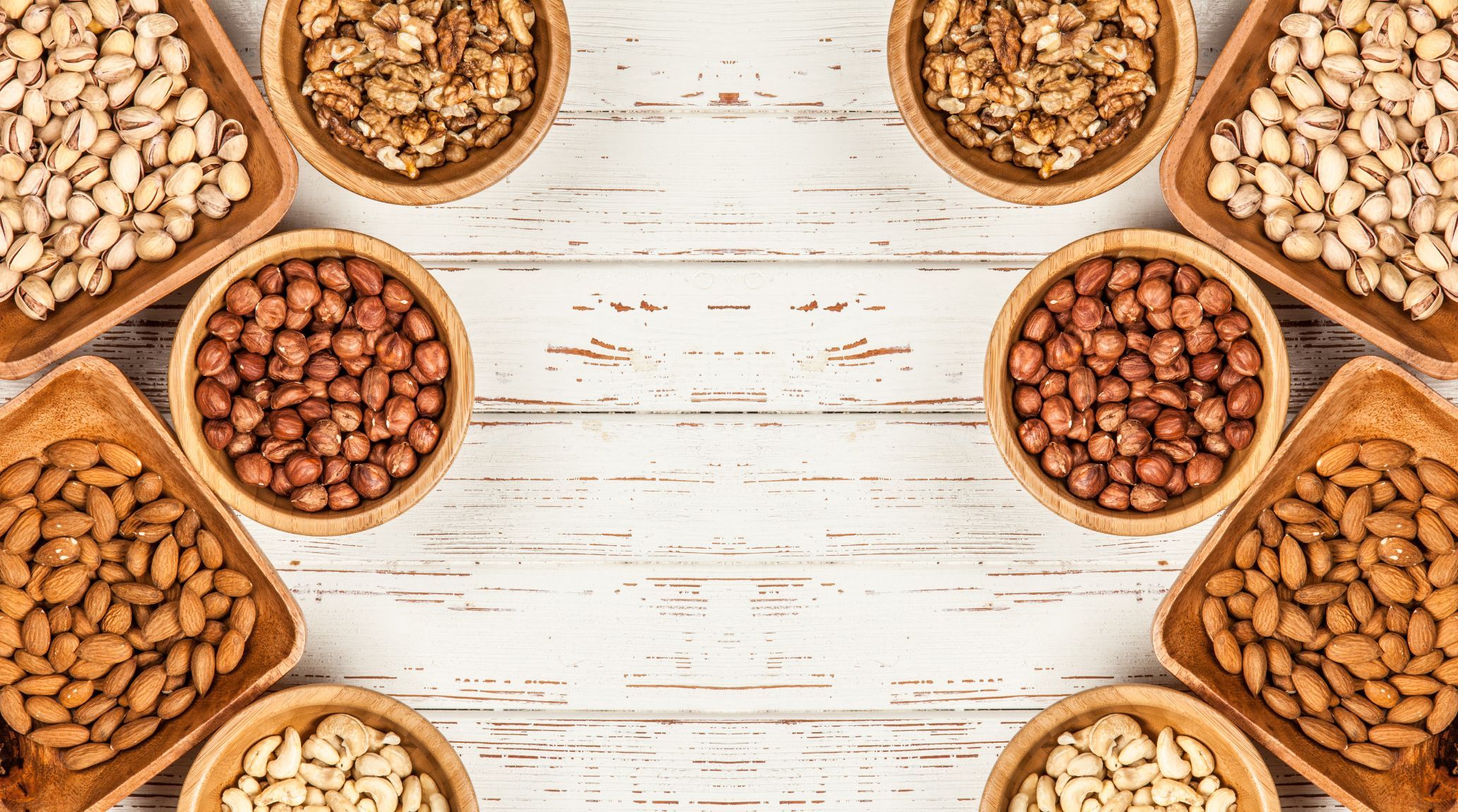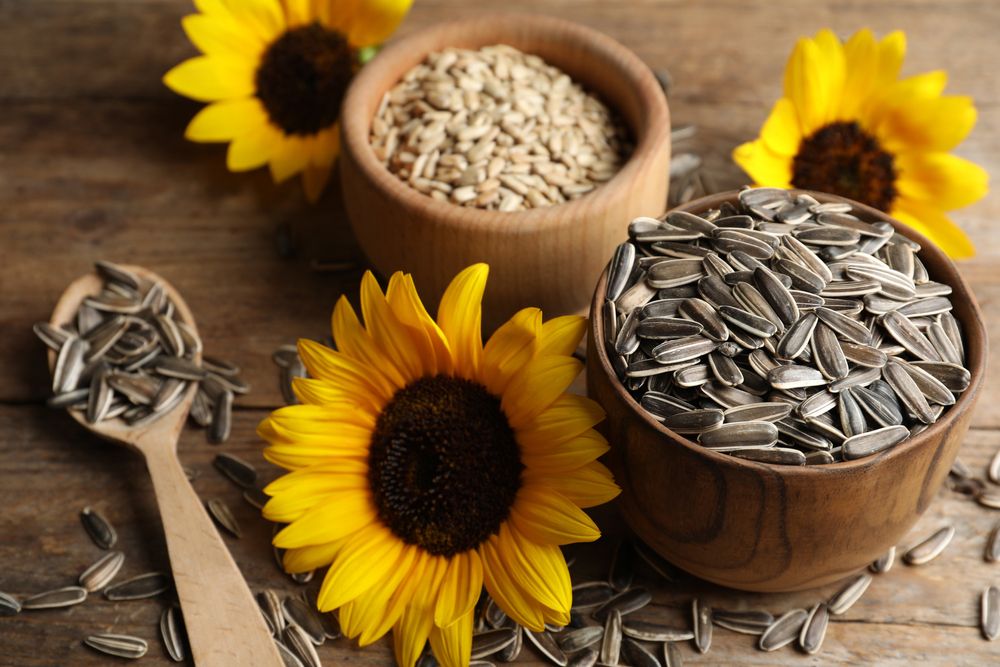
“
Embark on an enriching journey through the diverse world of nuts and seeds! These small yet mighty foods are not only delicious but also brimming with essential nutrients that support our health and well-being. Explore fascinating facts about their nutritional benefits, discover their versatile uses in cooking, and uncover their cultural significance across different traditions and cuisines. Join us in celebrating the natural goodness and flavoursome delights of nuts and seeds!1
1
1
”
Macadamia nuts are highly toxic to dogs and can cause severe health issues if ingested. Symptoms of poisoning may include vomiting, tremors, and lethargy. It's crucial to keep these nuts away from pets to ensure their safety and well-being. 1
Chia seeds are tiny nutritional powerhouses, packed with healthy fats, vitamins, and minerals. Ancient civilizations such as the Aztecs and Mayans relied on chia seeds for their endurance and to maintain their energy levels. 2
Despite their name, peanuts are legumes and grow underground, not on trees like other nuts. They are a rich source of protein, which supports muscle development and overall body strength. 3
Not all foods called nuts are true nuts. Botanically, only hazelnuts, walnuts, and sweet chestnuts are true nuts. Peanuts are legumes, while almonds, cashews, and pistachios are drupes. 4
Hazelnuts are not only delicious in chocolate spreads like Nutella but also serve as a fantastic ingredient for baking. They add a delightful crunch and rich flavor to a variety of sweet and savory dishes. 5
There are thousands of different edible seeds, each with unique tastes and health benefits. From sunflower seeds to sesame seeds, these seeds come in various shapes and sizes, enriching our diets with their diverse nutrients. 6
Almonds are known for their impressive shelf life, which can extend up to 2 years when refrigerated. This longevity is attributed to their high Vitamin E content, which helps preserve their freshness and prevent spoilage over time. 7

Sunflower seeds are a great source of magnesium, which can boost your mood and support mental well-being. Consuming these seeds regularly may help promote a more positive mood and overall emotional health.
Many nuts and seeds are rich in oils with various uses, such as sesame seeds, which are pressed to make sesame oil. This oil is not only used in cooking but also has applications in traditional medicine and skincare. 8
Cashew is not just nuts; they are also considered fruits. They grow on cashew apple trees, where the cashew nut develops on the outside of the cashew apple, making the cashew a unique and dual-purpose fruit. 9
Cashews have a tough, poisonous shell that must be removed before consumption. Once processed, these nuts are enjoyed for their creamy texture and healthy fats, contributing to a nutritious diet. 10
Almonds depend heavily on honeybees for pollination, which is crucial for their growth. Without these essential pollinators, almond production would face significant challenges and decline. 11
Ancient Greeks believed that hazelnuts had powerful medicinal properties, capable of treating ailments such as coughing and baldness. They used these nuts in traditional remedies, trusting in their natural healing abilities to address these health issues. 12
Chestnuts are a surprising source of vitamin C, containing approximately 20% of your daily recommended intake. Makes them a nutritious choice for boosting your immune system and supporting overall health while enjoying a delicious snack. 13
Nuts and seeds are packed with essential nutrients, with flaxseeds being particularly high in omega-3 fatty acids. These healthy fats are vital for supporting heart health and reducing inflammation. 14
Nuts provide plant protein with unique health benefits compared to tofu, legumes, and animal proteins. They are rich in unsaturated fatty acids, dietary fiber, polyphenols, phytosterols, folate, Vitamin E, selenium, and magnesium.15
Flaxseeds develop a gel-like consistency when they come into contact with moisture, which aids digestion. This property makes them an excellent addition to smoothies and baked goods for enhanced digestive health. 16
Brazil nuts are delicious but can trigger allergies in some individuals due to their unique nutrient profile. They are also a rich source of selenium, an essential trace element important for various bodily functions. 17
Seeds have evolved various protective mechanisms, such as hard shells that safeguard them until they are ready to germinate. Some seeds even have wings or hooks to assist in dispersal and travel. 18

Coconuts offer more than just a tasty food source; they are also used in a range of skincare products. Their natural oils are utilized in lotions to moisturize and soften the skin, showcasing their versatility beyond the kitchen.


